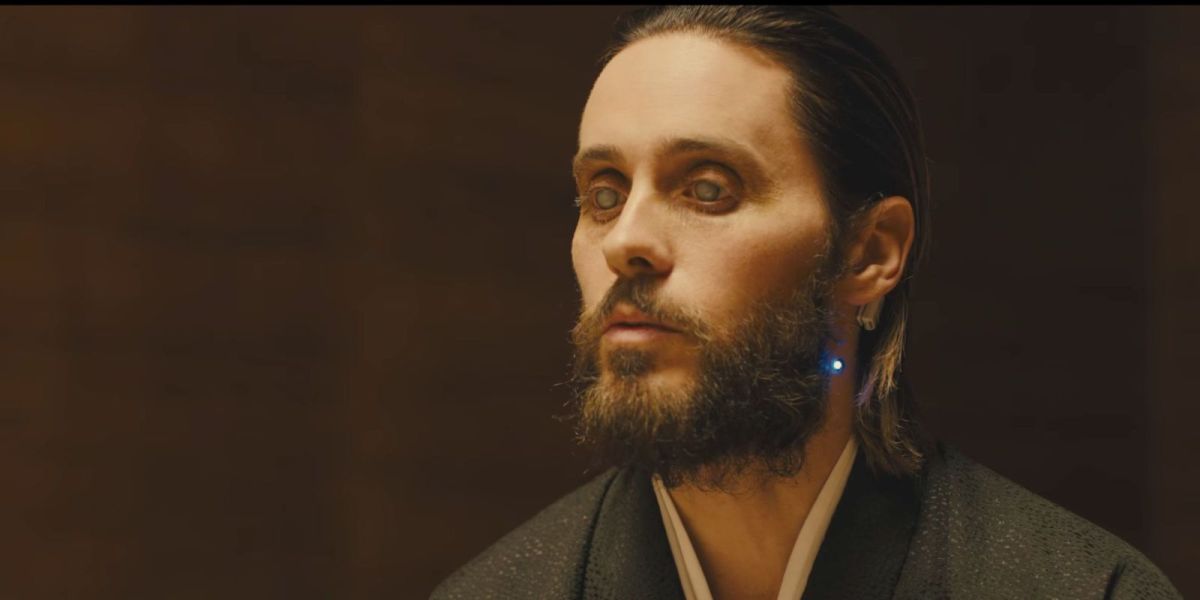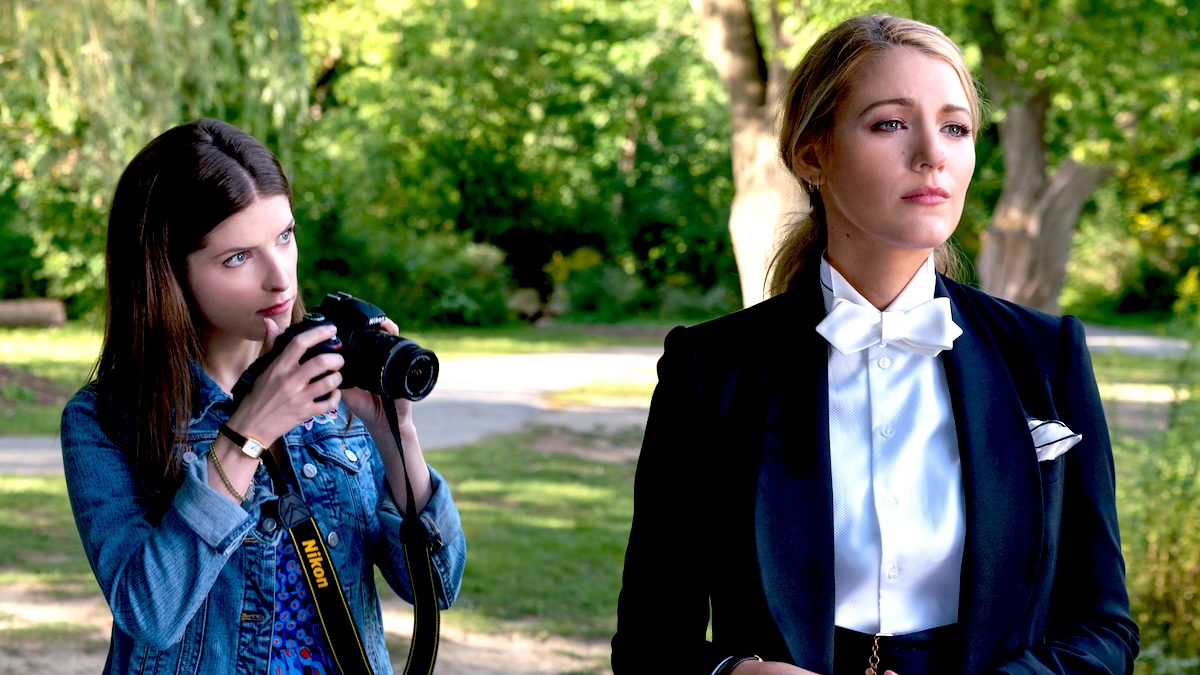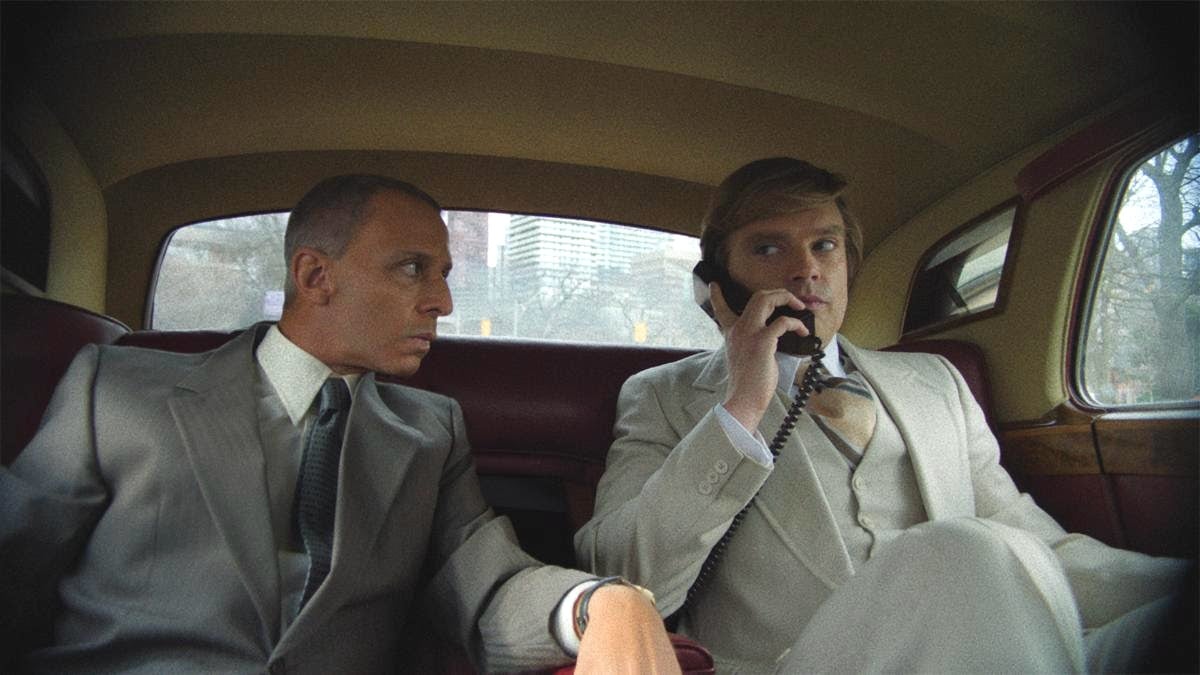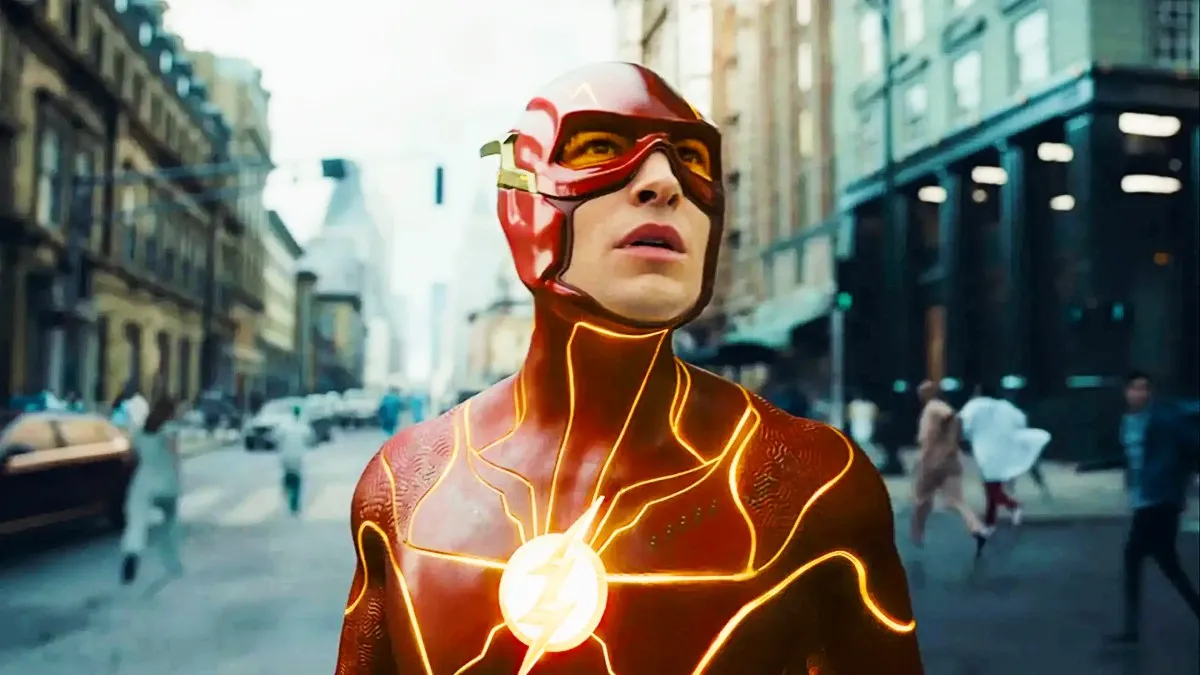Somehow, not having learned his lesson with the backlash prompted by his “method acting” in Suicide Squad, Jared Leto revealed that he “method acted himself blind” in preparation for his role in Blade Runner 2049. He plays Neander Wallace, the villain of the film, who is also blind. Of course, Leto being a “method actor” (not really), he carried out this performance just about everywhere on-set, even wearing opaque contacts to temporarily blind himself. It’s important to note that he risks permanent eye damage by doing so, but he is an actor, after all. Cue eye-roll.
Director Dennis Villeneuve detailed a camera test—a test! Before they even started!—to The Wall Street Journal in perhaps one of the most ego-inflating descriptions of Leto’s performances to date:
We all heard stories about Jared, how he transforms into the characters, but even this didn’t prepare me for what was to come. He entered the room, and he could not see at all. He was walking with an assistant, very slowly. It was like seeing Jesus walking into a temple. Everybody became super silent, and there was a kind of sacred moment. Everyone was in awe. It was so beautiful and powerful — I was moved to tears. And that was just a camera test!
“It was like seeing Jesus walking into a temple.” Wow. How far we’ve come, describing the guy who sent boxes of used condoms to co-stars as “Jesus.” Go ahead and add dead animals, live animals, and ammunition to that list, too, because hey, Jesus is a giving dude.
As bothersome and awkward as that description might be, it pales in comparison to the fact that yet again, Leto occupies a role that really should’ve gone to an actor who is a member of a desperately underrepresented community: blind or seeing impaired folks. Previously, Leto took on the role of Rayon, a trans woman in Dallas Buyers Club, a role for which he won Best Supporting Actor at the Academy Awards that year. Criticism of his casting was harsh (rightfully so) and swift, as many felt that the role should have gone to an actual trans woman, seeing as how trans women are either under or misrepresented in pop culture.
Here, he’s being praised—called “Jesus” for Christ’s sake—once again for more or less appropriating a role that, put simply, should not belong to him. One has to wonder: did the filmmakers search for a blind actor or actress? Would they have called their camera test “beautiful and powerful” as well? Would they be referred to as some type of deity, seeing as how blind actors and actresses are pretty darn rare? That’s not to say they don’t exist, but even I’ll admit that this is something of a shortcoming on my end: I can’t name too many sight-impaired actors or actresses myself, aside from Callan Mulvey (Batman v Superman, Captain America: The Winter Soldier, 300: Rise of an Empire), who’s partially blind (can’t see out of one eye due to an accident). And before any of you say it: it’s likely not a supply problem as much as it is a demand problem; people like Leto keep taking on roles, denying others the chance to “come up” and be recognized.
I’ll also say that he’s not the first non-visually impaired person to play a visually impaired character. Alec Baldwin recently came under fire for taking on the role of a “partially blind man” in Blind, as Deadline puts it. Charlie Cox, who plays Matt Murdock/Daredevil in Marvel’s Daredevil, isn’t blind, but apparently went to great lengths to research for the role. In this case, I find myself a little less put off by the erasure, as Cox doesn’t exactly have a history of stealing roles from underrepresented communities—Leto does.
Most of all, I’m very much bothered by the fact that people seem to be falling all over themselves to give Leto these roles and then lavish him with praise for temporarily going through what is daily life for other folks. I very much disagree with comparing him to hecking Jesus, but most of all, I am appalled that he’s just going to continue getting away with it all because Hollywood is ableist as all hell. Maybe I shouldn’t be so surprised.
Here’s the thing: yes, I realize that actors and actresses often occupy roles that don’t necessarily reflect their own lives. People deciding to play wizards, orcs, Jedis, or whoever aren’t the people with whom I take exception. It’s the severe drought, the downright absence of representation of differently-abled folks that I find insulting. As long as that disparity continues to exist (and be praised and defended) in Hollywood, performances like this one will continue to be problematic at best.
God, do better, Hollywood. But even if you can’t, don’t fucking worship someone who continues to appropriate roles. That’s just straight up gross.
(via Uproxx, image: Warner Bros.)
Want more stories like this? Become a subscriber and support the site!
—The Mary Sue has a strict comment policy that forbids, but is not limited to, personal insults toward anyone, hate speech, and trolling.—









Published: Sep 8, 2017 02:19 pm